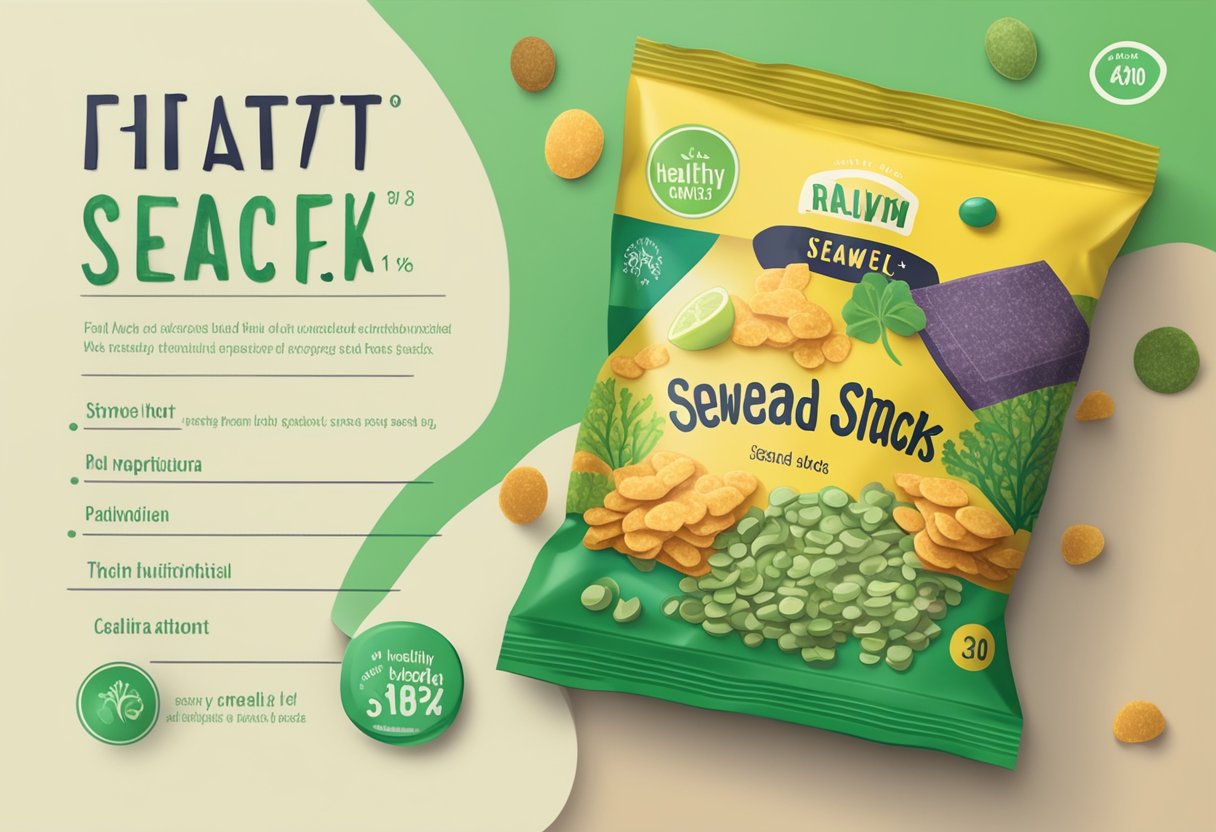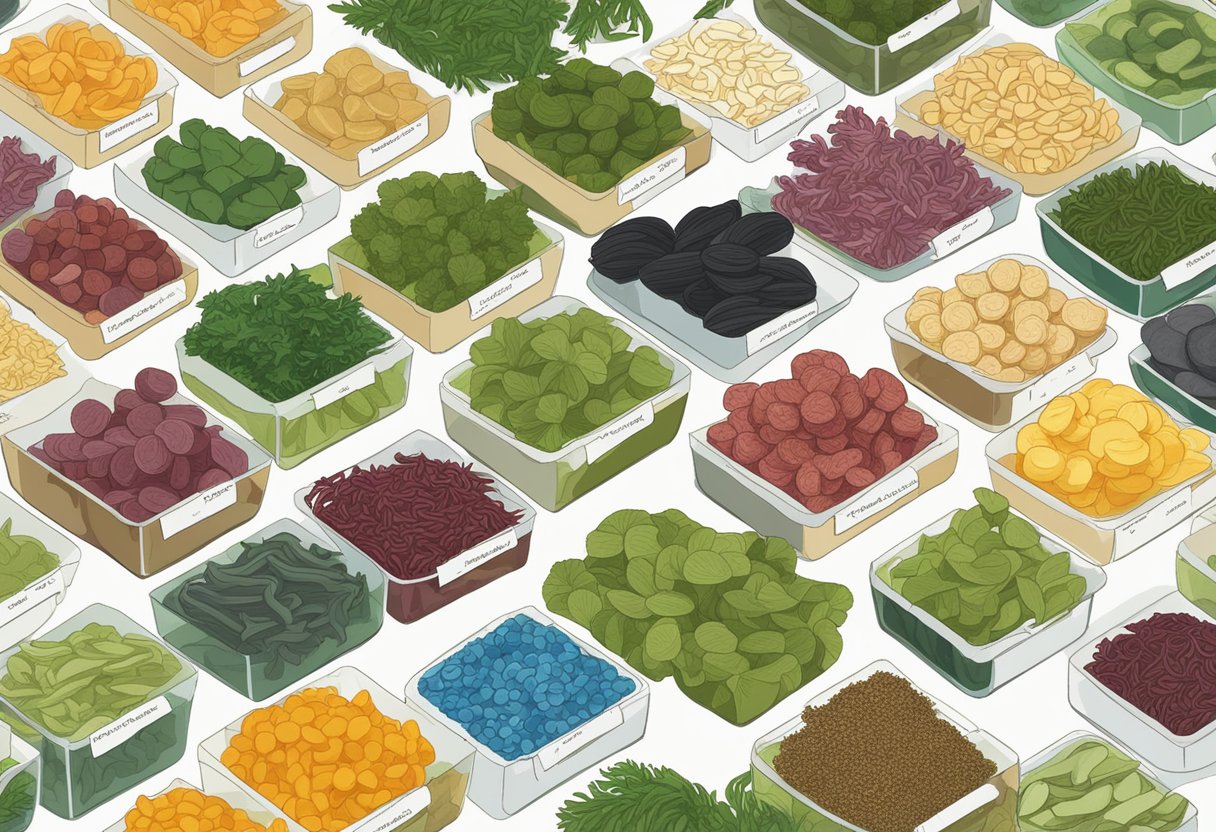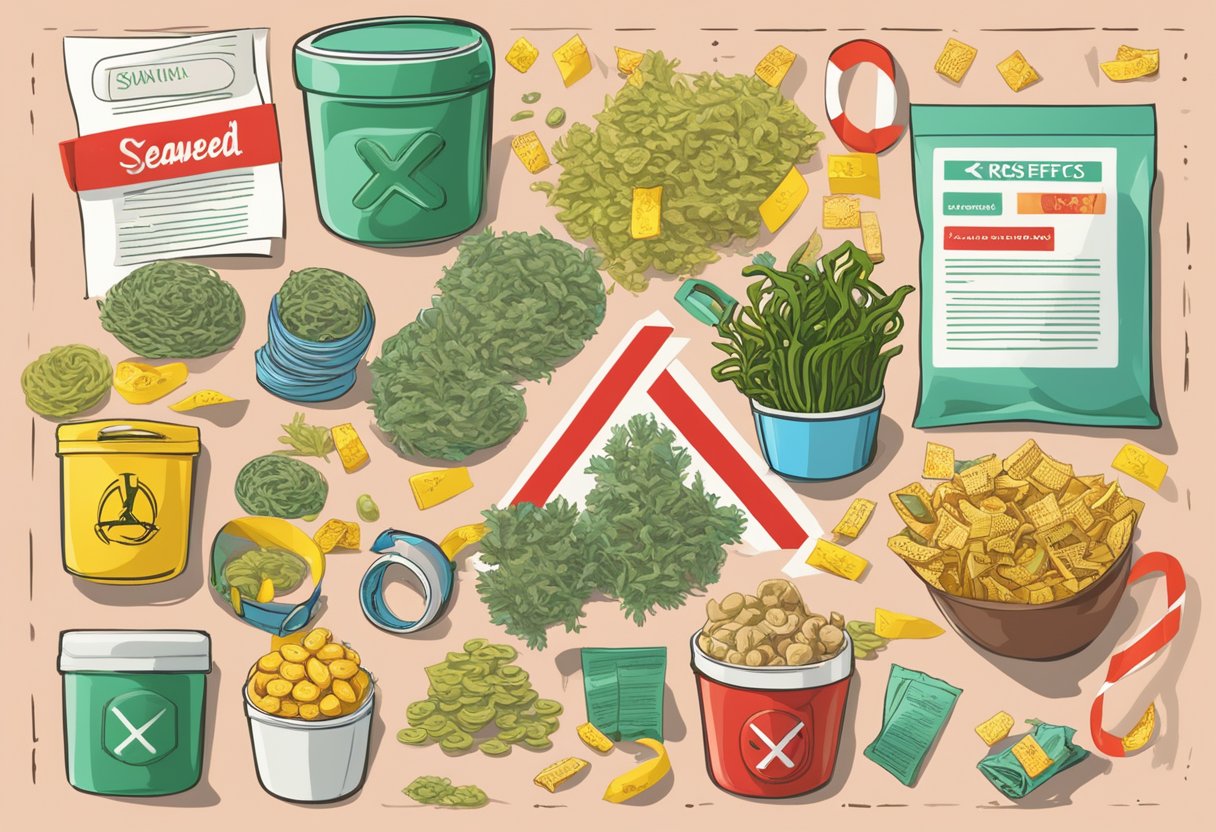Seaweed snacks have surged in popularity as a healthy alternative to traditional snack foods like chips and crackers. They are made from marine vegetables that are abundant in the ocean and are often touted for their rich nutrient content which includes vitamins, minerals, and antioxidants. The snacks come in various forms, from dried sheets to flavored crisps, appealing to a wide range of taste preferences.
In assessing the health implications of seaweed snacks, it is crucial to examine their nutritional profile. These snacks are generally low in calories and contain a range of beneficial nutrients such as iodine, which is essential for thyroid function, and fiber, which aids in digestion. However, just like any other food, they should be consumed in moderation as part of a balanced diet. While the health benefits associated with these snacks are backed by some studies, it's also essential to consider factors such as added ingredients and processing methods, which can alter their nutritional value.
Choosing the right type of seaweed snacks and being aware of their ingredients is significant. Opting for those with minimal processing and low in additives can maximize the health benefits and minimize potential risks. It’s also advisable to be aware of how these snacks fit into one’s overall dietary needs and restrictions, as well as considering any allergies or interactions with medications.

Key Takeaways
- Seaweed snacks are nutrient-rich and low in calories, contributing to their health appeal.
- Benefits depend on the snack’s nutritional content and the inclusion of natural, minimally processed ingredients.
- Selecting the right seaweed snacks requires attention to processing, additives, and individual dietary considerations.
Nutritional Profile of Seaweed Snacks

Seaweed snacks have gained popularity as a healthy alternative to traditional snacks. They are lauded for their rich nutrient content and potential health benefits.
Vitamins and Minerals in Seaweed
Seaweed is a substantial source of various vitamins and minerals. Notably, it provides iodine, essential for thyroid function, and is rich in vitamin C, calcium, and iron. An important distinction between seaweed and sea moss is that they have different nutritional profiles, with seaweed typically having a broader diversity of nutrients.
- Iodine: Crucial for thyroid health.
- Vitamin C: Important for immune function and skin health.
- Calcium: Essential for bone health.
- Iron: Necessary for blood oxygenation.
Caloric and Macronutrient Composition
In terms of caloric content, seaweed snacks are low in calories, making them a favorable option for those looking to manage their weight. They offer a balance of macronutrients, with a good proportion of protein and carbohydrates, while being low in fats.
- Calories: Generally low, making them a light snack choice.
- Protein: Offers a modest amount per serving.
- Carbohydrates: Primarily consists of dietary fiber.
- Fats: Typically low in fat content.
Both roasted seaweed snacks and dried seaweed snacks tend to preserve these qualities, making them healthy options for snacking, assuming the absence of excessive oil, salt, or added flavors.
Health Benefits and Considerations

Seaweed snacks are garnering attention for their nutritional profile which may offer various health benefits. They are low in calories and rich in minerals, but potential consumers should be aware of their iodine content and how it may affect thyroid function.
Weight Management and Seaweed
Seaweed snacks are low in calories and can be high in fiber, which contributes to a feeling of fullness. Fiber helps to reduce the total number of calories that one consumes, aiding in weight management.
Thyroid Function and Iodine
Iodine is crucial for thyroid health and seaweed is an excellent source. However, excessive iodine intake can lead to thyroid dysfunction. Therefore, moderation is key when consuming seaweed snacks to manage iodine levels effectively.
Cardiovascular Health
Seaweed contains heart-healthy components like omega-3 fatty acids and antioxidants. These nutrients can help in reducing blood pressure and lowering the risk of cardiovascular diseases.
Digestive Health
The prebiotic fibers in seaweed can enhance digestive health by promoting the growth of beneficial gut bacteria. Regular consumption of seaweed snacks might support healthy digestion and improve gut flora balance.
Potential Risks and Side Effects

While seaweed snacks offer nutritional benefits, it's important to consider certain risks and side effects that can accompany their consumption.
Excessive Iodine Intake
Seaweed is rich in iodine, which is essential for thyroid function, but too much can lead to thyroid dysfunction. According to guidelines, the upper limit for iodine is 1,100 mcg for adults, which can be exceeded with high seaweed consumption. Specific cases of overconsumption can result in hypothyroidism or hyperthyroidism, whose symptoms could include weight changes, fatigue, or heart palpitations. It is critical to monitor iodine intake and balance seaweed consumption with this nutrient need.
- Recommended Daily Allowance (RDA) for Iodine: 150 mcg for adults
- Upper Limit for Iodine: 1,100 mcg for adults
Heavy Metal Contamination
Seaweed can absorb and accumulate heavy metals from its marine environment. Consuming seaweeds that contain high levels of heavy metals might pose health risks, such as neurological issues and kidney damage. When choosing seaweed snacks, it's advisable to opt for products from clean water sources and companies that test for heavy metal contamination.
- Common heavy metals of concern: Arsenic, Lead, Mercury
Allergies and Sensitivities
Some individuals may experience allergic reactions or sensitivities to seaweed. These could manifest as skin rashes, itching, or digestive discomfort. People with existing seafood allergies should be cautious when introducing seaweed into their diet to avoid potential adverse effects. Data on seaweed allergies is sparse; thus, awareness and careful attention to body reactions during consumption are recommended.
- Possible allergic symptoms:
- Skin: rash, hives
- Digestive system: discomfort, bloating
Choosing and Consuming Seaweed Snacks
Selecting the right seaweed snacks is crucial for maximizing their health benefits. This section will guide you through choosing healthy options, integrating seaweed snacks into your diet, and consuming them sustainably.
Selection Criteria for Healthy Options
When picking seaweed snacks, analyze the nutritional information. Look for snacks low in sodium and free from artificial flavors and preservatives. Roasted seaweed snacks are often considered healthy due to their beneficial nutrients, like iodine and vitamins.
- Ingredients: Opt for products with a short, recognizable list of ingredients.
- Nutritional Value: Seek out snacks high in vitamins and minerals and low in calories.
Integrating Seaweed Into Your Diet
Seaweed can be a versatile addition to a diet. To harness the full spectrum of their potential health benefits, consume them in moderation as part of a balanced diet.
- Meal Variety: Incorporate seaweed into meals such as soups, salads, or as a garnish.
- Portion Control: Keep portions small to avoid excessive iodine intake.
Sustainable Consumption
Consistency in sustainable consumption of seaweed snacks ensures the health of both consumers and the environment. Verify the source of the seaweed and the harvesting methods used. Exploring the differences between kelp and sea moss could further inform on sustainability and health impact.
- Eco-Friendly Packaging: Choose brands that use biodegradable or recyclable packaging.
- Harvesting Practices: Support companies that harvest seaweed sustainably to reduce environmental impact.
Frequently Asked Questions
Seaweed snacks are gaining popularity for their unique taste and purported health benefits. This section addresses common queries related to their consumption, nutritional content, and suitability for different age groups.
What are the health benefits of consuming seaweed snacks?
Seaweed snacks are rich in nutrients like iodine, vitamin K, B vitamins, iron, and magnesium. They also contain fiber and potent antioxidants, which may support thyroid function, digestive health, and reduce the risk of chronic illnesses.
How often should seaweed snacks be consumed for optimal health?
Moderation is key when incorporating seaweed snacks into a diet due to their high iodine content. Nutritionists suggest enjoying these snacks a few times a week as part of a balanced diet to avoid excessive iodine intake.
Can seaweed snacks be a suitable food for toddlers, and are there any precautions?
Seaweed snacks can be introduced to toddlers as part of a varied diet. However, parents should choose low-sodium options and monitor portions to prevent excessive iodine and salt intake.
Is there a potential for side effects from eating seaweed snacks?
While seaweed snacks are considered safe for most people, excessive consumption may lead to iodine overload, which can affect thyroid function. Those with sensitivity to certain compounds in seaweeds may also experience digestive distress or allergies.
How do seaweed snacks compare nutritionally to traditional snack options like chips?
Seaweed snacks typically have fewer calories, less fat, and more vitamins and minerals compared to traditional snacks such as chips. They often contain heart-healthy fats and can be a lower-calorie alternative to improve snacking habits.
What should one look for when choosing the best seaweed snack products?
When selecting seaweed snacks, one should look for organic, non-GMO labels and scrutinize the ingredient list for minimal additives and low sodium content. The origin of the seaweed and third-party testing for contaminants are also important factors to consider.




